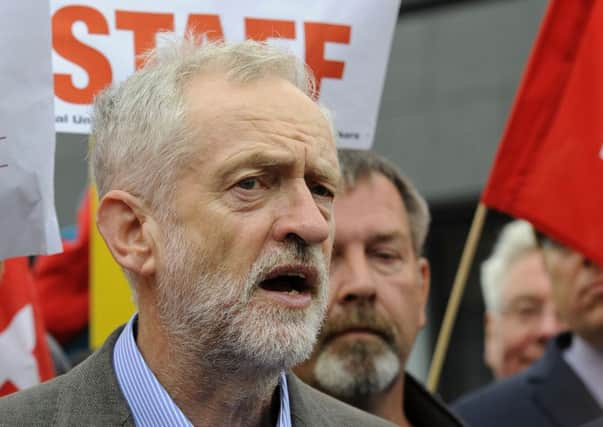‘Labour has under-estimated me’ - Jeremy Corbyn


The radical left-winger dismissed claims that he did not want to be prime minister, insisting his “serious” pitch for the top job was the “greatest opportunity” for the party to win back voters who have turned to the Conservatives and Ukip.
Mr Corbyn’s two main rivals, Andy Burnham and Yvette Cooper, have been engaged in a bitter fight over who is best placed to stop the backbencher’s rise, with both camps demanding the other clear the way.
Advertisement
Hide AdAdvertisement
Hide AdMr Burnham has tried to win over Mr Corbyn’s supporters by insisting they share “common ground” and suggested that the Islington North MP did not want to take the party all the way to No 10.
Talking to supporters in central London, Mr Corbynsaid: “Why would I be here, why would our campaign be here, if we didn’t want to win this campaign, in order to make the Labour Party a more effective campaigning organisation, in order that we can win the 2020 election?”
He also insisted that renationalising the railways would bring an end to “rip-off” fares.
The Labour leadership frontrunner claimed strong public support for returning train services to public ownership.
Advertisement
Hide AdAdvertisement
Hide AdHe set out plans to stop the renewal of private operators’ franchises as passengers were told that low inflation would keep fare rises down next year.
But he said services in the UK remained the most expensive in Europe with pricing that punished people travelling at short notice for hospital visits, funerals and other occasions.